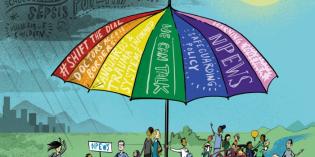Resource
Allergy care pathway for asthma and/or rhinitis
Asthma is typically associated with chronic inflammation and hyperresponsiveness of the lower airway leading to airway narrowing. Rhinitis is characterised by symptoms including rhinorrhoea (watery, runny nose), sneezing, bilateral nasal obstruction (congestion) or itching. This is one of several al...










